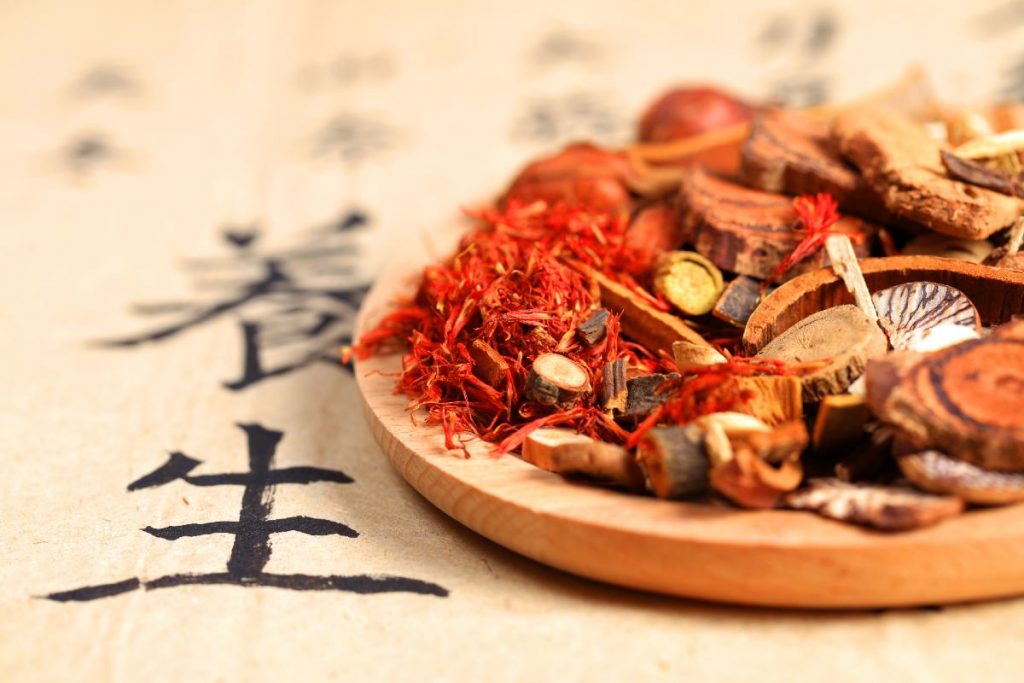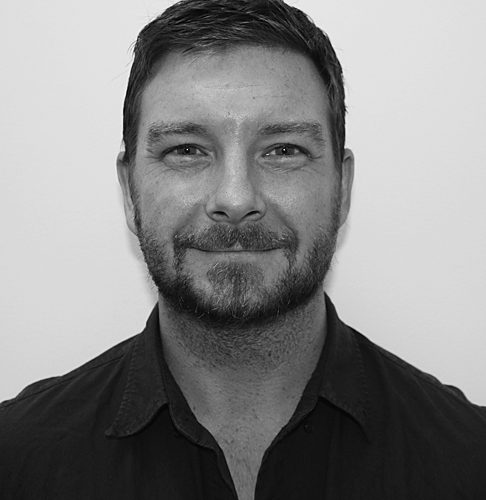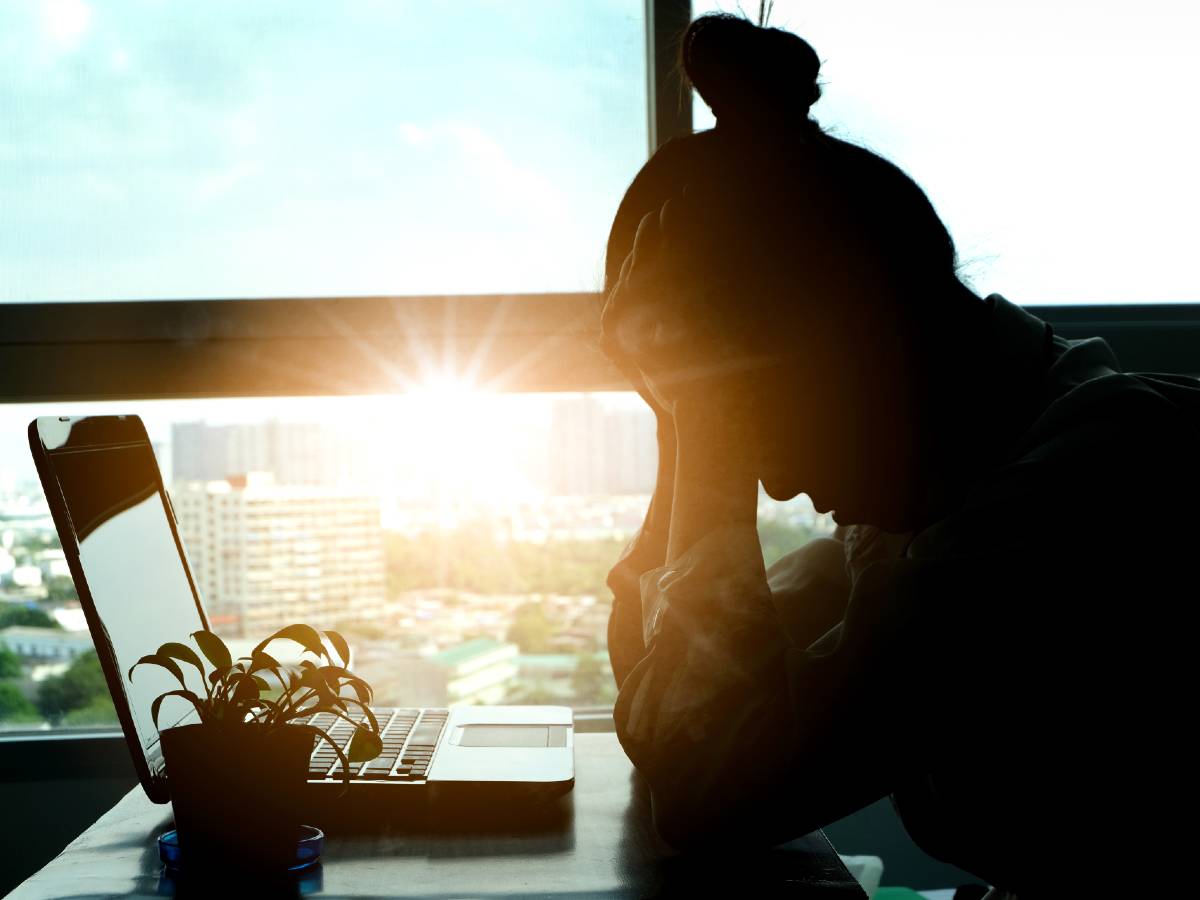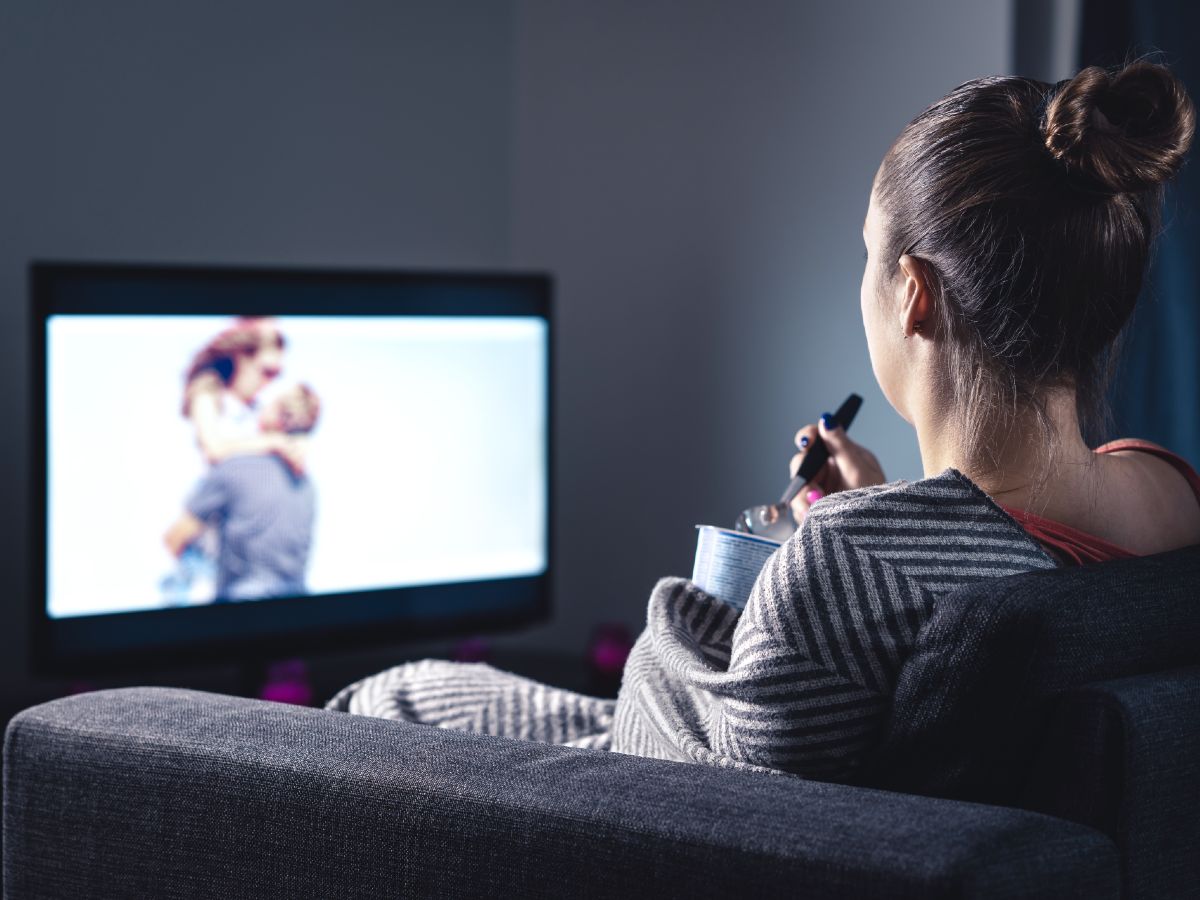How to help insomnia
Insomnia and sleep problems can be tricky things to deal with. Most people have tried the more common remedies for poor sleep, such as reducing caffeine, switching off from screen time before bed, and keeping the bedroom as dark and noise free as possible. But what if you still find yourself lying awake through the middle of the night? Here are a few other options from Chinese medicine to help you sleep through the night.
1. Warm foot bath
An hour before bed, soak your feet in a warm foot bath for 20 minutes. The water should be warm, but not too hot. This can help to draw the energy down from you head to your feet, calming any stress and worries you may have carried with you throughout the day.
You can also add some magnesium flakes for an extra boost. Magnesium is easily absorbed through the skin, which is especially helpful if your digestion is a bit sluggish and you aren’t absorbing all your nutrients as well as you could. Magnesium has a fantastic effect on sleep, helping to relax muscles and deactivate adrenaline.
2. Acupuncture pressure points for insomnia
There are some powerful acupuncture points on the body that can help you get a restful sleep, which can be activated with some self-massage in the evening before going to bed.
KIDNEY 1 (Yong Quan - Gushing Spring)
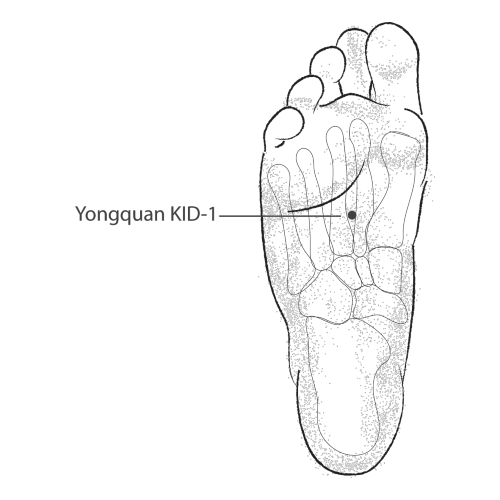
Found on the sole of the foot, in the depression in the middle directly behind the front foot pad. This point is also good at bringing excess energy downwards, helping to clear your mind. Massage fairly deeply and strongly with your thumb.
HEART 7 (Shen Men - Spirit Gate)
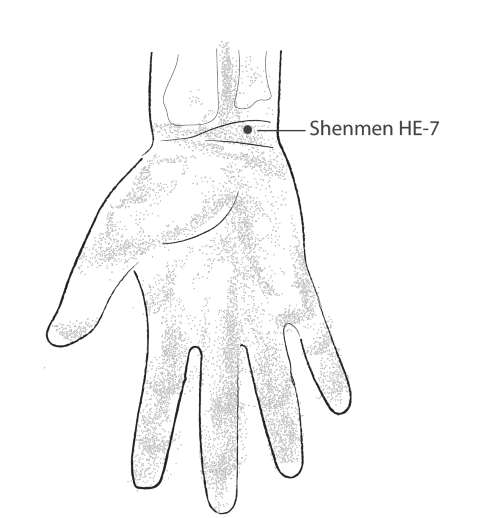
On the inside of the wrist, in line with your little finger, at the wrist crease. In Chinese medicine, the Heart is seen as being very important in allowing your mind to rest. This point helps to calm your Heart and your mind. Use your thumb to press and hold this point for 20-30 seconds.
REN 17 (Dan Zhong - Chest Centre)
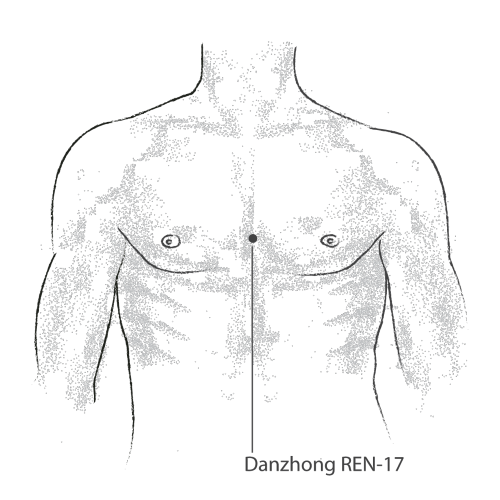
On the midline of the sternum, in the middle of the chest. This point is great for people who hold anxiety in their throat and chest, and feel they can’t breathe deeply. This point can help to open and expand the chest, allowing for deeper and more relaxed breathing. Use the four fingers of both hands to rub this point in a downward motion.
AN MIAN (Peaceful Sleep)
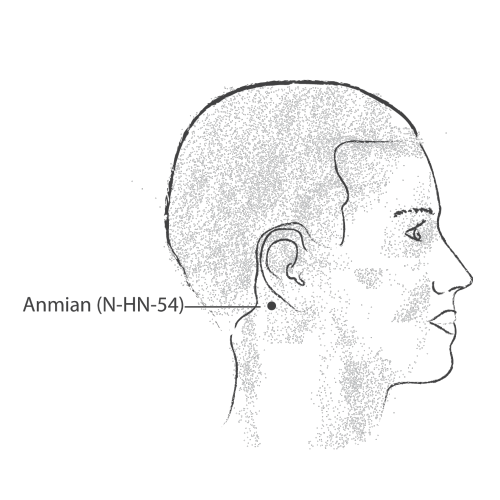
As the name suggests, this point has a specific effect on sleep, and helps with insomnia by reducing agitation and restlessness. To find it, run your finger back half an inch from behind your earlobe (you’ll feel a small depression), and massage gently in small circles.
PERICARDIUM 6 (Nei Guan - Inner Gate)
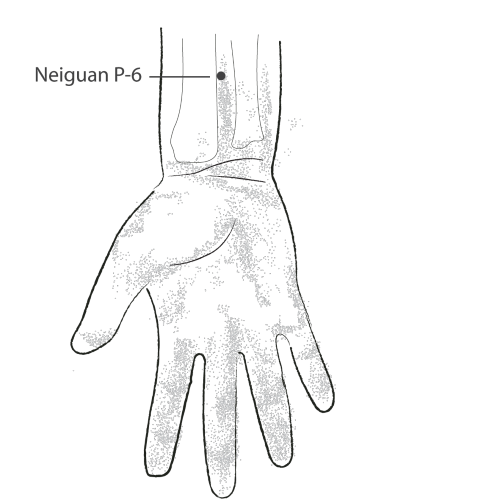
Located on the inside of the forearm, 2 inches back from the wrist crease in a depression right in the middle of the arm. This point helps to calm the spirit, and rest and relax the body. This point is a good one to remember if you’re ever feeling nauseous. Rub in small circles with your thumb.
3. Meditation before bed
Meditation is a great way to switch off the mind before going to bed for the night. You don’t need to do it for long, 10 or 20 minutes can be enough to get the brain to power down from its daytime mode.
Research has shown that meditation, in particular mindfulness meditation, can be a powerful tool in combating insomnia, helping to elicit the elusive “relaxation response”. This is the opposite of the “stress response”, and can not only help with sleep, but also with general stress, depression, and pain.
Headspace have a great app that can help teach you mindfulness meditation, or you can find free meditations for sleep here.
4. Qi Gong for sleep
Qi Gong (pronounced Chee Gong) involves posture/movement, breathing techniques and mental focus, with the aim of integrating and renewing the body, mind and spirit. In this way it works a little like meditation, but with the added benefit of movement, it can more fully relax the body.
A Qi Gong practice at the end of the day can help you shake off the day and get you ready to sleep. It’s gentle exercise, so it will release any tension you may be holding onto from work, and as it’s also a meditation exercise, it will calm your mental energy so you’ll be able to sleep more easily.
There are plenty of Qi Gong practices on YouTube that you can use, but I’m a fan of Lee Holden’s, which you can find here (10 mins) or here (20 mins).

